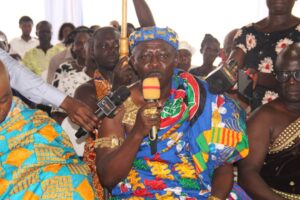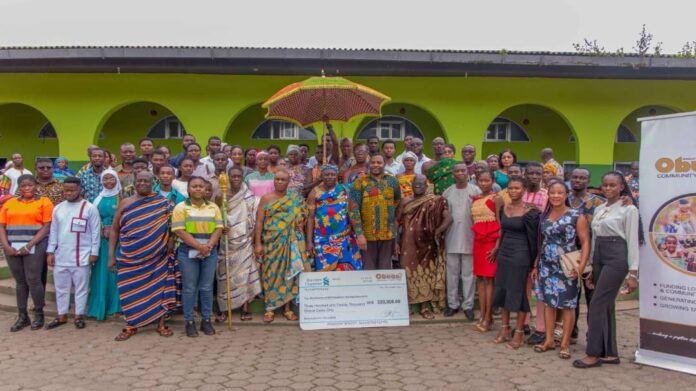The AngloGold Ashanti Obuasi Community Trust Fund has presented a GH¢320,000 Education Fund to 160 students from communities across Obuasi.
The event highlights the Community Trust Fund’s commitment to supporting deserving students in their pursuit of higher education.
The Trust Funds Tertiary Education Grant Scheme, which was launched just before the 2019/2020 Academic Year commenced, has benefitted 160 students to date.

In a speech read on behalf of the Senior Manager Community Relations-Africa, Mr. Emmanuel Baidoo, the Monitoring and Evaluation Specialist of AngloGold, Mr. Yaw Britwum Opoku, noted that the Community Trust Fund, since 2019, after the redevelopment of the Obuasi mine commenced, has received contributions of $2 per each ounce of gold produced, which has accumulated to $1.2 million as of September 2023.
“As education is the cornerstone of a sustainable and thriving society, Anglo Gold Ashanti, through the Obuasi Community Trust Fund, believes that by investing in the education of young minds, we are sowing the seeds of progress and empowerment in Obuasi,” he said.
He said, among other things, that the educational grants had greatly enhanced access to tertiary education and reduced school dropout rates from senior high to tertiary within the catchment areas of the Mine.
The Obuasi Municipal Chief Executive, also a Board Member of the Trust Fund, Mr. Elijah Adansi Bonah, charged the beneficiary students to learn hard to enable them continue to benefit from the grant.
He stated that the management of the Fund was going to monitor the performance of the students, and those who do not perform well would have their grants withdrawn.
Mr. Francis Amoah, Programmes Manager of the Fund, said the beneficiaries comprised 81 males and 79 females for engineering, Colleges of Education and Nursing/Midwifery students.
Barimah Nsu Antwi Kwaning II, Benkumhene of Fomena, who represented the Adansihene, charged parents of the winners of the grant to ensure that their wards developed good attitudes and exceptional moral standards to enable them complete their courses.
From Frederick Danso Abeam, Obuasi









